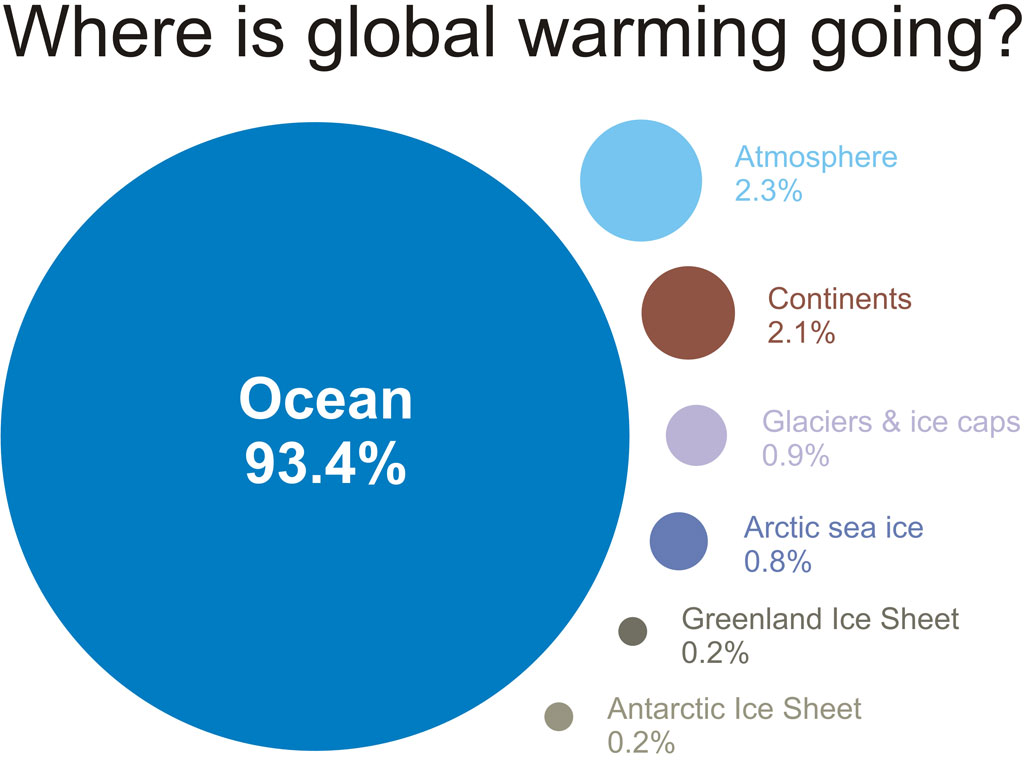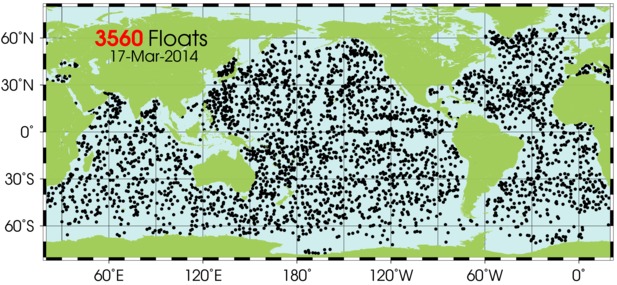The Argo project was devised to launch 3500 floats to cover the oceans and record temperatures,salinity and velocity down to a depth of 2000 meters.
This is text taken from the Argo web site.
‘Lack of sustained observations of the atmosphere, oceans and land have hindered the development and validation of climate models. An example comes from a recent analysis which concluded that the currents transporting heat northwards in the Atlantic and influencing western European climate had weakened by 30% in the past decade. This result had to be based on just five research measurements spread over 40 years. Was this change part of a trend that might lead to a major change in the Atlantic circulation, or due to natural variability that will reverse in the future, or is it an artifact of the limited observations?
In 1999, to combat this lack of data, an innovative step was taken by scientists to greatly improve the collection of observations inside the ocean through increased sampling of old and new quantities and increased coverage in terms of time and area.’
.
The last El Nino was in 1998 which saw a massive spike in atmospheric temperatures with droughts and floods and huge disruption to farming and food production but there are very few records from the Pacific which was the main driver of the event.
NASA has now raised the likelihood of an El Nino in September to 50% and no doubt there will be a big scramble to get buoys, satellites and other measuring devices in position to record the event for the first time..




 RSS Feed
RSS Feed